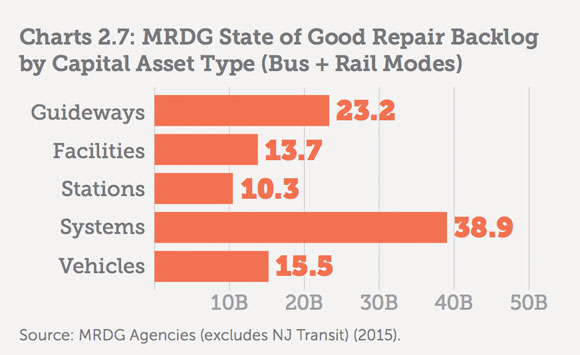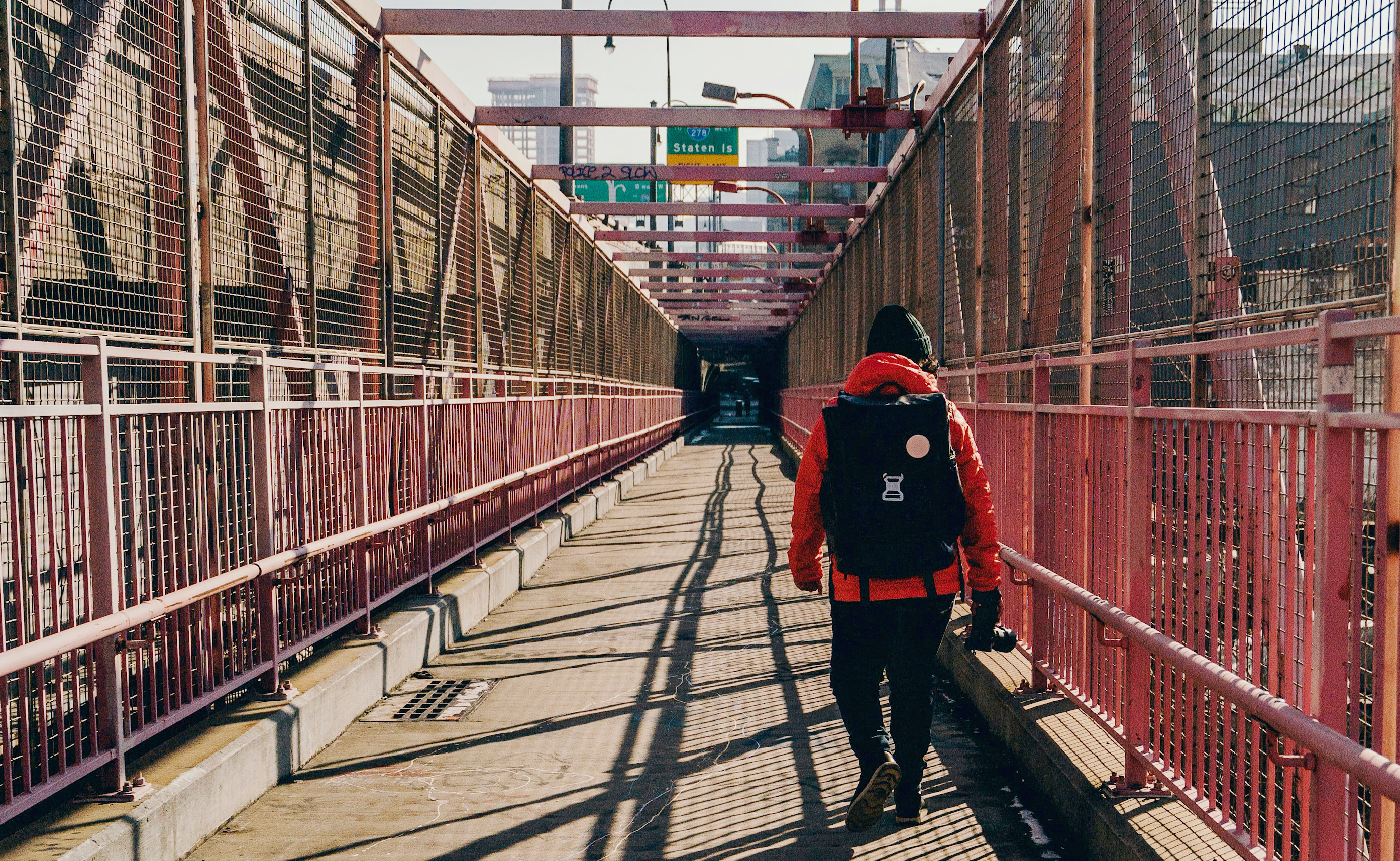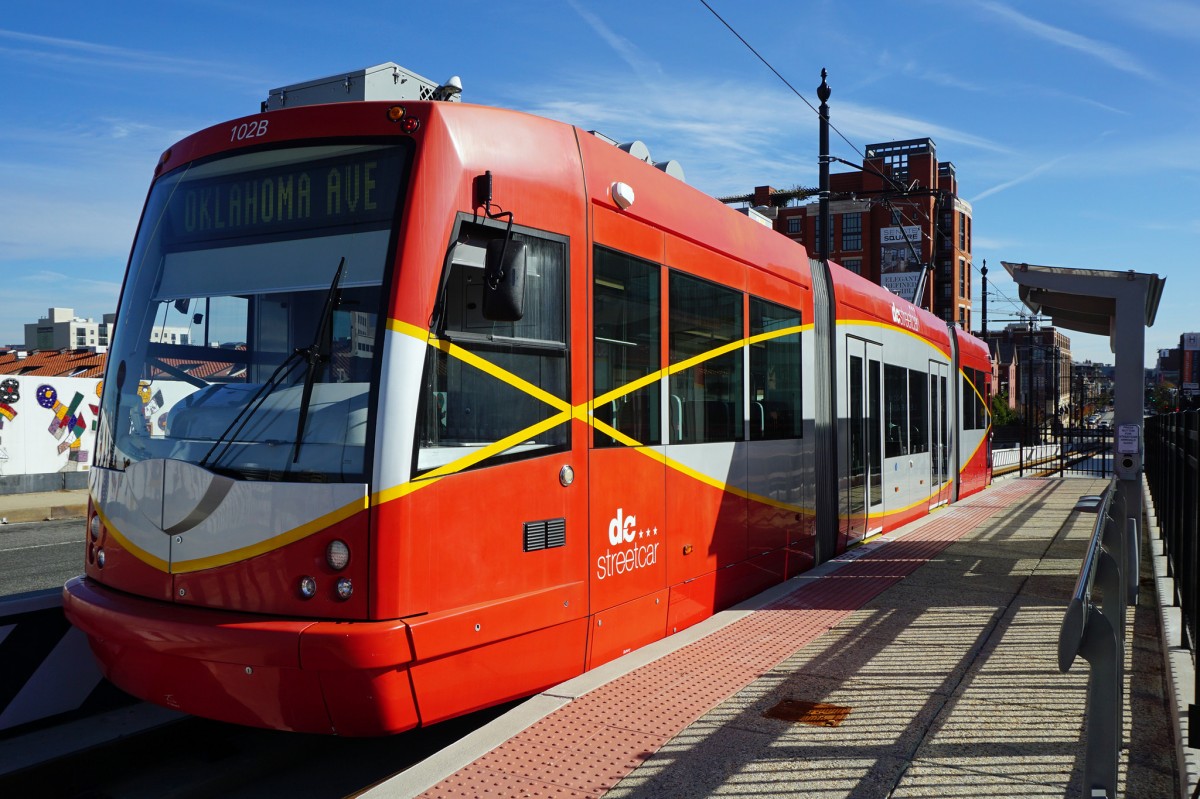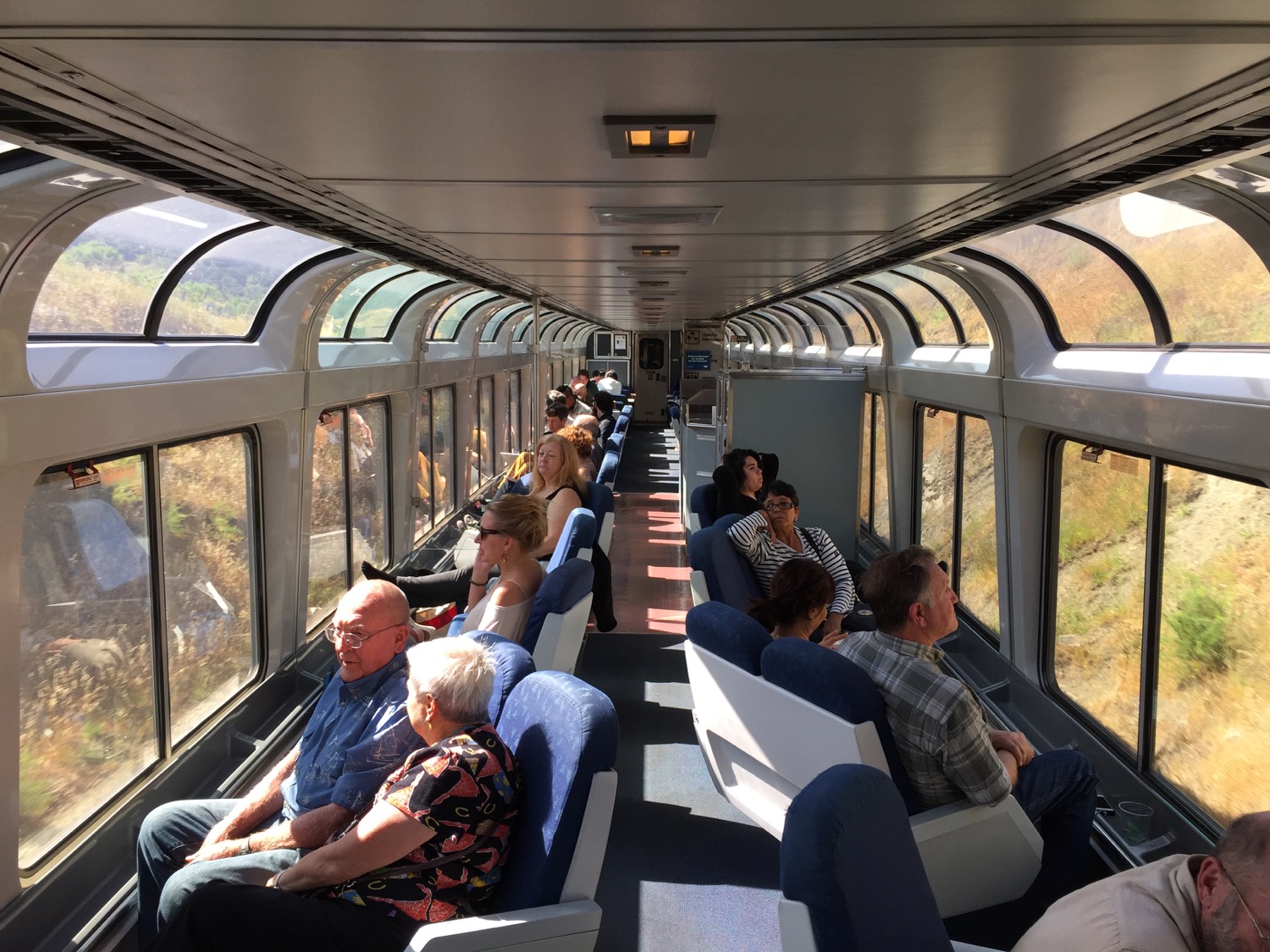
While federal transit funding stagnates, the nation's largest rail and bus systems have been delaying critical maintenance projects. Without sustained efforts to fix infrastructure and vehicles, the effects of deteriorating service in big American cities could ripple across the national economy, according to a new report from the Regional Plan Association [PDF].
RPA focuses on ten of the nation's largest transit agencies -- in Boston, San Francisco, Atlanta, Philadelphia, New York, Cleveland, New Jersey, Pittsburgh, Washington, D.C., and Chicago. Between them, these agencies face about $102 billion in deferred maintenance costs. To bring the systems into a state of good repair will require about $13 billion in maintenance spending per year -- more than twice the current rate of investment.
These regions house about one-fifth of the country's population and produce about 27 percent of the nation's economic output. They also carry about 60 percent of the nation's total transit ridership, up from 55 percent 20 years ago. That's a reflection of how transit has become increasingly important in these regions, with passenger trips growing 54 percent over the same period.
That level of ridership growth can't be sustained if the transit systems aren't maintained properly. RPA cites a 2012 report from San Francisco's BART that says if the system is allowed to deteriorate...
...the consequences will be drastically negative. BART’s aging infrastructure will fail more frequently, causing substantial declines in reliability and more crowding. In turn, BART ridership, which is expected to increase to half a million riders a day if current levels of service can be maintained, will stagnate or even decline.
The decline of the country's big transit systems could have wide-ranging economic consequences, deterring growth in America's most productive regions.
In 2013, about $5.4 billion in capital funding was available to these 10 agencies from the federal, state, and local governments, with another $1.9 billion coming from fares, tolls, and dedicated taxes. Of that $7.3 billion, about 80 percent, or $6 billion, was spent on maintenance, RPA reports. But even if it all went toward maintenance, that would fall far short of the $13 billion needed to repair and replace the systems' core infrastructure.
The federal government isn't about to step in. The transportation bill working its way through Washington right now will, at best, continue status-quo funding levels for transit over the next six years. If anything, the federal bill will aggravate the problem.
A late amendment from Washington Rep. Jaime Herrera Beutler eliminates the "Growing State and High-Density States Funding Program," which helped deliver about $272 million in funding to some of the big transit agencies in the Northeast in particular, according to the Tri-State Transportation Campaign. It's not clear whether the amendment will survive conference committee.
RPA Board Chair Lee Sander said that creating wider recognition that transit maintenance is a national problem, not just a local one, is an important first step.
"Hopefully this will give leverage to the individual transit properties… as they deal with their state legislatures and other legislative bodies," he said.
Correction: This post originally reported Jaime Herrera represented Oregon in Congress. She represents Washington.





